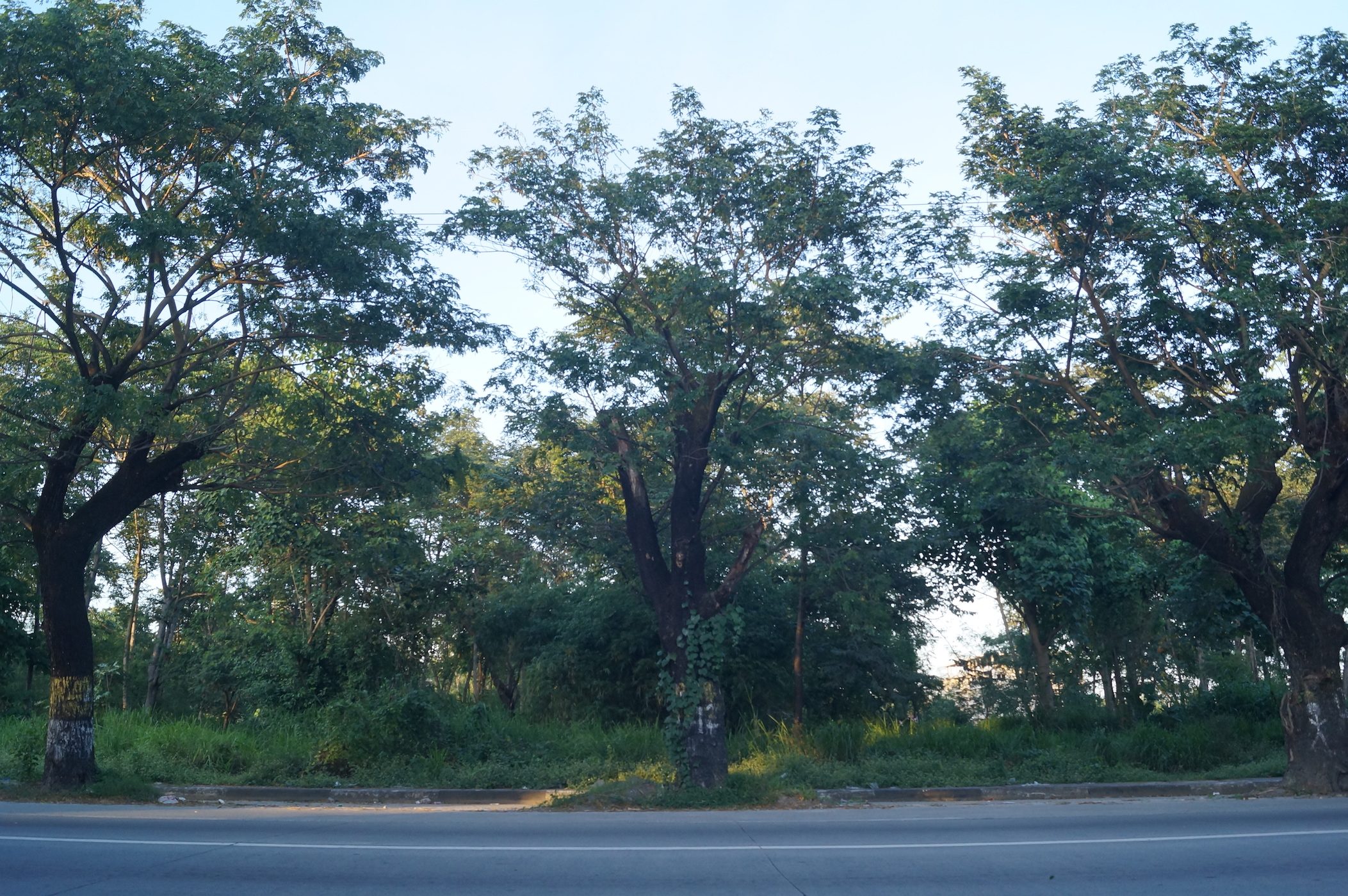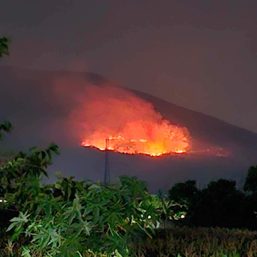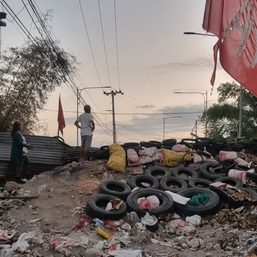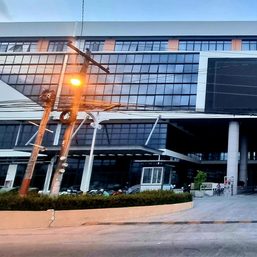SUMMARY
This is AI generated summarization, which may have errors. For context, always refer to the full article.

Environmentalists have lost their bid to save around 259 trees along the Fil-Am Friendship Circumferential Road in Angeles City, Pampanga, but they said the legal battle is far from over.
In an 88-page decision dated January 4 – which the Save the Trees Coalition (STC) received on Tuesday, February 2 – the Regional Trial Court Branch 59 in Angeles City junked the complaint of environmentalists from STC.
Presiding Judge Maria Angelica Paras-Quiambao said in her decision that the Temporary Environment Protection Order (TEPO) that has suspended the tree-cutting operation of the Department of Works and Public Highways (DPWH) along the highway for a year, so far, will be lifted “upon finality of the decision.”
“For the failure of the plaintiffs to impugn the evidence presented by the defendants regarding their compliance with the conditions set forth in the tree cutting permits, the court must rule in favor of the defendants,” Quiambao said.
On January 7, 2020, the DPWH started cutting trees along the highway for its road widening project, sparking public criticism and an online petition led by environmentalists from the STC. The group then filed a complaint against officials of the DPWH and the Department of Environment and Natural Resources (DENR) before the Angeles City RTC to stop the operation.
Separation of powers
In the decision, Quiambao also cited the separation of powers of the executive and judicial branches. The defendants’ witnesses said that the DPWH was just complying with DPWH Department Order No. 73 series of 2014 that provides that national roads must be free from obstructions, including trees.
“The court would not interfere with the function and mandate of the DPWH…. The court does not have the authority to amend or order the amendment or cancellation of the designs for the infrastructure projects of the government. To even attempt to do so would infringe on the independence of the executive department and violate the separation of powers of the 3 branches of government,” the court said.
The court maintained the DPWH’s arguments that the trees have to be cut to ensure traffic safety, as trees close to the road present potential hazards. The defendants had reasoned that cutting the trees will give way for the construction of drainage system to remedy the area’s flood problem.
Environmentalists earlier raised that Pampanga, a natural catch basin, is most vulnerable to flooding, especially without the aid of deep-rooted trees to hold rainwater.
Striking a balance
Quiambao said in her decision that the court “recognizes the right of the citizens to a balanced and healthful ecology” and that the effects of climate change, as stressed by the environmentalists in their complaint, “cannot be denied.”
“Thus, there is a pressing need to protect the environment and save it, especially for the benefit of future generations. With the promulgation of Rules of Procedure for Environmental Cases, courts became guardians of the environment with the goal to protect it and ensure that environmental laws are not violated,” she said.
But she added: “However, the court must likewise balance the need to safeguard the ecology and the need to improve the country through continuously building infrastructure. There is no question that the country must progress, and one of the ways to do so is to improve roads to accommodate the growing population of the country.”
Quiambao said the defendants “were able to establish that the government, through the DENR, is consistent with their efforts in minimizing the harmful effects of removing trees due to its infrastructure projects” and cited the government’s tree replacement scheme.
“This is why the court cannot give credence to the plaintiffs’ claim that the 1:100 ratio is not enough. Aside from their bare statement, they were not able to prove that the replacement scheme of the DENR and the DPWH does not produce the results desired,” she said.
“The court commiserates with the plaintiffs and it still maintains its role of safeguarding the citizens’ constitutional right to a balanced and heathful ecology. However, after trial on the merits and after numerous evidence presented by both parties before the court, the plaintiffs failed to rebut the defendants’ position that the plaintiffs are not going to suffer grave and irreparable injury if the court will allow the cutting of the 259 trees,” the judge added.
Battle not over
The STC said in a statement on Wednesday, February 3, that it will file a motion for reconsideration with the court or raise the case to the Court of Appeals within 15 days of its receipt of the notice of ruling.
“The legal battle is not yet over for all of us because there are available post-judgment remedies, such as filing a Motion for Reconsideration with the trial court or an appeal with the Court of Appeals,” it said.
It noted that “finality of the decision” as stated in the court ruling would mean that it did not avail of any post-judgment remedies within 15 days of receipt of the notice of decision.
“The STC will not tire and falter with its commitment to protect the trees in Angeles City and elsewhere in Pampanga. The STC believes that we are all but mere stewards of the planet,” the group said.
It said that while the case is on appeal, it will “reach out to private individuals, the Clark Development Corporation, and entities inside and outside the Clark Freeport Zone for the sponsorship and earth balling of the condemned trees.”
“The STC believes that we deserve better infrastructures, but not at the expense of the environment,” it said.
The STC had written Public Works Secretary Mark Villar in November 2020, seeking his help in preserving the trees along the Friendship Highway. The group enumerated how the trees not only protect the environment but also help improve residents’ health and quality of life, especially during the pandemic.
They also proposed to Villar an alternative plan for the road-widening project that would spare the trees and cited past DPWH projects that allowed old trees and road widening projects to coexist, as in the case of the stretch of road along the Visayas State University.
In a similar case back in 2012, the court ruled in favor of the group and saved 486 trees lining the stretch of MacArthur Highway from Barangay Sto. Domingo, Angeles City to Mabiga, Mabacalat City. – Rappler.com
Add a comment
How does this make you feel?





There are no comments yet. Add your comment to start the conversation.